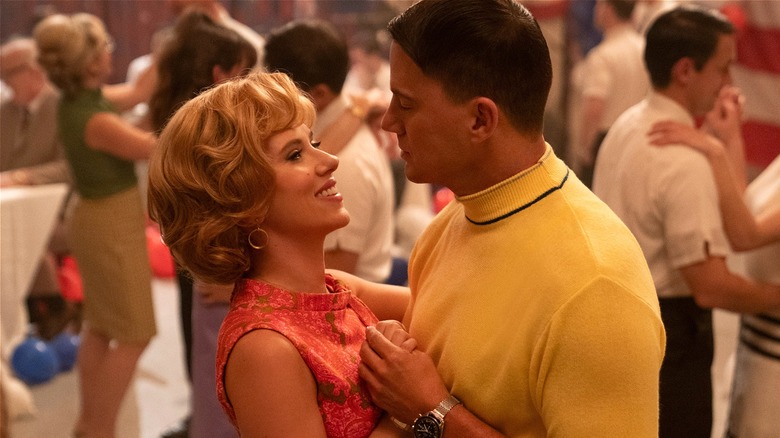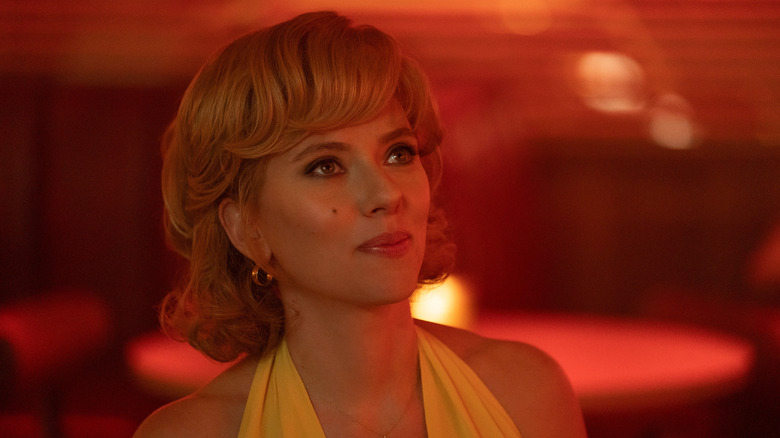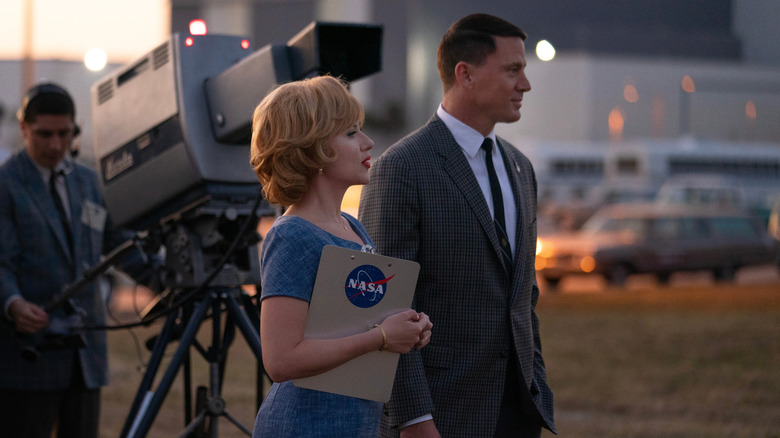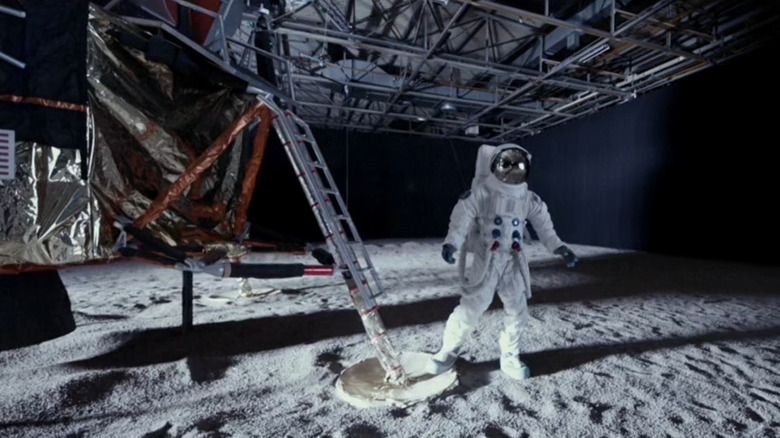Is Fly Me To The Moon Based On A True Story?
2024 box office bomb "Fly Me to the Moon" is a historical drama about the Apollo 11 space mission and subsequent moon landing by a team of astronauts in 1969. Channing Tatum is director Cole Davis, working for NASA at the Kennedy Space Center to ensure the launch is successful. Scarlett Johansson is Kelly Jones, a publicity and marketing specialist recruited by NASA to manage the public expectations and perception surrounding the event.
To ensure that there is a positive outcome no matter what happens, Jones is tasked with preparing fake footage of a moon landing to broadcast in case the mission fails. She's not on board with the decision, but those around her pressure her into it by threatening to make less-than-stellar aspects of her past public. She also has to keep it a secret from Davis, who she's becoming romantically entangled with.
While the movie is rooted in the actual 1969 space mission, the core premise of fabricating landing footage is not based on a true story. "Fly Me to the Moon" focuses on the popular conspiracy theory that the moon landing in its entirety is a hoax, and that NASA and the government faked the achievement to beat the Soviet Union in the space race. But even though it isn't real, there are parts of "Fly Me to the Moon" that are inspired by the truth.
Is Kelly Jones a real person?
The character of Kelly Jones is loosely based on Julian Scheer, a journalist and the assistant administrator for public affairs at NASA during the Apollo 11 mission. After the mission, he organized and led the press tour of the astronauts with the intent to share the accomplishment of the United States with the world. Scheer worked with the astronauts and engineers directly, much like how Kelly communicates with Cole in the film, to bridge the gap between the public, the media, and the space team.
Scheer attended launches to better understand what was needed for all parties to both educate and inform the American public, while developing outreach materials for citizens and classrooms. While Scheer was not strong-armed into his task with the space mission like his fictional counterpart, he did play a significant role in creating the public image around the moon landing. He helped design the commemorative plaque on the Lunar Module, named the Apollo ll command module, and even participated in the decision to have the astronauts place the American flag on the moon.
What did experts think of a movie about a conspiracy theory?
In an interview with The New York Times, University of New Hampshire sociology professor Lawrence Hamilton expressed concern for how conspiracy theorists might use footage from "Fly Me to the Moon" to further their own agendas. For example, photos of astronauts during training with a lunar rover, in preparation for the Apollo 16 mission, were posted online and are regularly recirculated as "evidence" that the moon landing was faked.
Hamilton believed something similar could happen with clips from the 2024 film. "They said, 'This is them faking the moon landing, and it's proof,'" he told the Times. "And they will do the same thing with clips from this movie. They'll do whatever it takes to say, 'This proves what we've said all along.'" Without context and shared in certain spaces online, the footage from "Fly Me to the Moon" could continue to fuel the fabricated moon landing theories, especially for generations who don't remember it or weren't alive when it happened.
Did a fake moon landing conspiracy inspire any other movies?
"Fly Me to the Moon" isn't the first movie about the moon that's been inspired by the conspiracy theories surrounding the Apollo 11 mission and the lunar landing. The 2015 film "Moonwalkers" follows a CIA agent (Ron Perlman) who's tasked with hiring legendary director Stanley Kubrick — because of his realistic recreation of space travel in "2001: A Space Odyssey" — to develop fake footage of a moonwalk, just in case the actual moon landing fails. What ensues is a comedic battle as the CIA agent is tricked by someone posing as Kubrick's agent, with nobody sure which footage airs on television in the end. (Theories that Kubrick filmed fake moon landing footage are also addressed in the documentary "Room 237.")
In a similar vein, the 1977 film "Capricorn One" is the story of a faked Mars landing. While a launch takes place, the astronauts are removed from the vessel at the last minute and taken to a secret location. Told they would die because their ship's life support system was not functioning properly, they are forced by the government to help fake the landing on Mars in an effort to ensure that funding for NASA continues.



